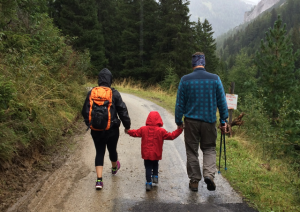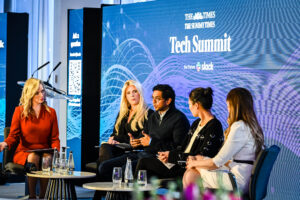Understanding the hopes and fears for the future of both parents and teenagers has never been more relevant in a landscape of profound change and uncertainty. Long held, more traditional parental concerns around further education, financial independence and job security remain true. But, the pandemic has added another layer of complexity as many parents worry about the longer-term impact on their children’s future.
Teenagers take a shorter term and optimistic view of their future, focusing on their immediate next stage life steps and do not think too far forward into ‘grown up’ areas. Concerns for teenagers however, come in a different form, fuelled by high levels of knowledge and awareness of bigger picture, macro societal and political issues such as climate change, Brexit, and Black Lives Matter. Arguably they make sure they channel these concerns into actions and/or energies, for example, causes which motivate them and goals to work towards with hope.
“I want Tom to have a job that is enjoyable, where he gets paid well but not at the expense of happiness. However, it is important that it is a long-term job, one that does not fold and that gives him security and financial stability.”
News UK Respondent
Our Modern British Families research with News UK found a focus on mental health over the last few years has created a cohort of parents who take a less pressured view on their children’s future, shunning ‘ambition’ in favour of longer-term health. Hopes no longer rigid around professional prowess and pay grade but around softer metrics such as happiness.
Front and centre of parents’ priority is job enjoyment for their children, which sits above all else and takes precedence over any financial gains. This seems to be driven by an awareness of the link between job dissatisfaction and mental health along with some of their own negative experiences of working life.
“Mental health is massive, it has taken me 6 years to get help for my daughter.”
News UK Respondent
Economic fears one day, hopes the next
The normal anxieties of the transition from secondary school onwards have certainly been magnified by the Covid-19 pandemic. In fact, in the News UK survey, 89% of parents said they were either quite or very concerned about young people’s job prospects or future career.
Educating their children on financial acumen and the value of money seems high on parents’ agenda. In our survey, nearly 60% of parents had talked to their kids at least twice in the last three months about money.
Parents also realised first-hand the impact of economic uncertainty 41% of respondents said Covid-19 had already impacted their income, with 21% asserting that whilst it hadn’t currently, they expected it to in the future. For this reason, many parents we spoke to cite the (seemingly) deeply unstable economic outlook and surging youth unemployment as a reason to steer their children towards a university education - to wait out the gloomy financial environment, building their skillset in the meantime.
Parents also realised first-hand the impact of economic uncertainty 41% of respondents said Covid-19 had already impacted their income, with 21% asserting that whilst it hadn’t currently, they expected it to in the future. For this reason, many parents we spoke to cite the (seemingly) deeply unstable economic outlook and surging youth unemployment as a reason to steer their children towards a university education - to wait out the gloomy financial environment, building their skillset in the meantime.
“The job market is going to be very poor over the next couple of years due to the recession, so she might as well stay in education until we come through the end of it.”
News UK Respondent
That said, on one day we seemed to be predicting the worst recession since 1936, whereas a few months later economic news had more of a ‘glow’ and news of ‘bounces’ were abundant. Therefore, pessimism on one day should be treated with caution the next, especially in a world which is volatile and unpredictable.
Life’s autopilot moments are being rethought
With tuition fees now at £9,250 a year, many families are worried about the prospect of £50,000 worth of debt after graduating. News UK research found, 76% of parents were either quite or very concerned about the cost of university, and you can see why.
“If there is one-thing we could hope for our son is that he doesn’t go into adult life with a load of student debt.”
News UK Respondent
At the same time, families are debating the relative worth of a university degree with growing evidence that the ‘graduate premium’ has been consistently falling. With Covid-19 having impacted 48% of our News UK readers’ incomes, this is more of a concern for parents than ever.
Arguably this is a world which is highly unpredictable and volatile, and parents get this. In some ways they fear it but the fact it can change in a day, means they are cognisant that their one-day fears might be hopes the next.
Hopes for a new generation of scientists
Due to the perceived destruction of certain industries during Covid-19, parents have been encouraging their teenagers to seek courses that will guide them to a more stable future. Rational choices are shifting away from creative and service sector and more towards the business sector, with the ability to work from home at the forefront of decisions.
“Jasmine wanted to be a fashion designer, but because of Covid-19, I am steering her away from the creative world to have a firmer business grounding. Covid-19 has changed our priorities.”
News UK Respondent
According to the IDP, searches for courses in the computing and mathematical sciences subject area have increased their percentage in share of traffic. This may be explained by students having spent a year with intense reliance on computers and online technology, year 13 students may also have developed a greater appreciation of how important technology is, both now and in the future, heightening their awareness of the relative stability of computing technology as a future career.
According to The Guardian, growing numbers of young people are feeling inspired by the scientists they’ve watched on TV and read about online. A recent poll of 1,000 4-18 year-olds by the British Science Association found that 59% are more tempted by careers in science than they were prior to the pandemic. Celebrity scientist Brian Cox has even predicted that the pandemic will create “a new generation of scientists”.
Fears for a generation of Avatars, able to function less well in the physical world
Families believe that technology has allowed their teenagers to be independent, hyper aware and savvy which will set them up well for the future. Our parents talked about their children’s ability to undertake their own research to make informed purchase decisions, transact online and monitor their finances through banking apps.
“My daughter is very entrepreneurially minded. She sells clothes on Depop to make money but gets nervous having to phone up to make a doctor’s appointment or ask advice in a shop.”
News UK Respondent
On the other hand, technology has seemingly prohibited their children having often important, real life conversations, especially with people of authority.
It is questionable to what extent the reality is children are just being children
and shy within the physical world (regardless of the virtual one). Is this just
the perception of parents who feel a distance to their children, quite naturally, they’re moving further from the laps, away from that base (and in fact working through how to manage the physical world, but fluent already in a virtual one which parents find harder to navigate).
Aligned morals and values
Despite generational gaps, morals and values amongst families tend to be broadly aligned with all family members sharing concerns about the environment and economy (although strong opinions are much more prevalent amongst older vs younger teenagers).
Most of the conversation surrounds the differences between the generations at equivalent ages with the widespread acknowledgement that teenagers nowadays have a greater level of awareness and interest in world issues and a more proactive ‘activist’ approach.
“Kids now are very switched on, definitely compared to when I was growing up. They watch the news and talk about politics.”
News UK Respondent
However, with this confidence comes a note of caution from parents that their teenagers hold very strong views which are often fuelled through social media or fake news.
Parents are aware of the echo-chamber of social media (that said I’m sure taking only one print title offered an analogue echo-chamber of sorts when parents were younger).
What does this all mean for brands?
Be the anchor
Parents see happiness and stability as going hand in hand. They are concerned by the housing market and careers, and they want their children to be secure and happy. Brands should focus what stability they can offer. For example, - finance brands could focus on savings accounts offering stability for their children as they start their careers, they could position savings account as mortgage starter accounts that are designed for parents who can help contribute to this over a longer period and in smaller increments.
Reverse mentor the soft skills
Parents are concerned by the fact their children’s softer skills (whilst savvy at research) are being hindered by the overuse of technology. Touchpoint’s data shows young people spend more time on instant messaging services versus talking on the phone. Whilst brands have focussed on upskilling older people on technology e.g. Barclay’s Digital Eagles campaign, could a similar campaign be undertaken to upskill softer skills. For example, could a mobile provider company reward teenagers with extra data if they spend more time making phone calls.
Big science
The pandemic has reframed career aspirations, with science seeing a huge rise in interest. Government brands should capitalise on this and showcase the range of careers they have that can be linked to science for example medicine, teaching science or scientific research. This provides a further opportunity for brands to tackle diversity in such industries. Science, which has failed to capture the interest of females, has an opportunity to showcase the brilliant women involved in the fight against Covid-19, for example the female scientists in charge of developing the Oxford Astra Zeneca backgrounds. Brands who have science in their DNA (i.e. FMCGs) could look for ways to champion their science – and celebrate their audience scientists – greatest innovators etc.
Start/be the catalyst for conversation
Our research has found that values are aligned across generations, and the differences in views aren’t as extreme as they once were. However, parents are concerned about fake news and the fact their children’s lack of life experience means their views are black and white. Equally some teenagers feel their parents aren’t progressive enough. Therefore, brands should drive positive change by uniting families and encouraging conversations. How can brands start a debate within the family? How do they become the catalyst for conversations and debate?









